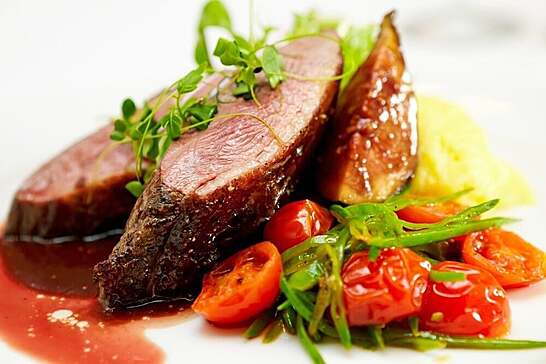Can you write me a new meal plan?
Written by Andrew Meyer
Follow the science before trying a new diet
Often I am asked to write nutrition, meal or diet plans for personal training clients. Most of the time my question back is this, if I write you a meal plan would you follow it to the absolute T? The answer from my clients, if they are totally honest with themselves is, no! Perhaps it is not possible for Often I am asked to write nutrition, meal or diet plans for clients. Most of the time my question back is this, if I write you a meal plan would you follow it to the absolute T? The answer from my clients, if they are totally honest with themselves is, no! Perhaps it is not possible for my type of clientele to follow a diet plan to the letter as it's unrealistic with their busy lifestyles.
Unless we are an athlete who’s job is to eat train and sleep it is very difficult to follow a precise meal plan. The reasons for this are, the food in the meal plan may not be to your taste, your lifestyle may not allow you to eat at intervals I have planned out for you, you simply don’t cook for yourself so meal prep is impossible or you just can’t get your head around it. type of clientele to follow a diet plan to the letter as its unrealistic with their busy lifestyles.
Instead of spending time trying to get my clients to follow a diet or meal plan that may not compliment their lifestyle, I get them to stick to the science. All diets, meal or nutritional lifestyles or plans have to follow the science or they just simply do not get you the desired result you are seeking.
The science is this - energy in (kcal consumed), energy out (kcal burnt), no special tricks and definitely no quick fixes. It’s as simple as that, you eat more than you expend you will gain weight (body fat), you eat less than you expend you will lose weight (body fat). Fine, if you need to follow a specific diet that taps into your psychology then go ahead but remember it’s the science not the diet that’s getting you the results.
Once you are consistently following the science of energy in, energy out. You can make it more complex by being clinical about the correct amount of macro and micro nutrients you consume according to your kcal/BMR. This will improve overall health, avoid energy slumps and even improve your BMR (Basal Metabolic Rate). Also adding meal frequency and timing correctly to give the right amount of energy at the right times of the day can be beneficial to how well you can train, how well you sleep and avoid feeling hungry which in turn stops you from binge eating.
Here is the calculation to workout how many calories you should consume everyday:
22 x your weight (Kg) x 1.3(little or no exercise) to 2.3(training like an athlete) = your daily kcal / BMR (Basal metabolic rate). Eat this many kcal everyday and you will maintain the body you have.
To lose weight (body fat): your BMR - 20% = your daily kcal
To gain weight (muscle): your BMR + 20% = your daily kcal (make sure to train/exercise accordingly otherwise you will gain body fat)
Myfitnesspal is a great application that will work this all out for you and you can monitor your calories by inputting the food you are eating.
Once you have got some results do not forget to recalculate your BMR as it will change if you have lost body fat, gained muscle or are training harder or even less.


